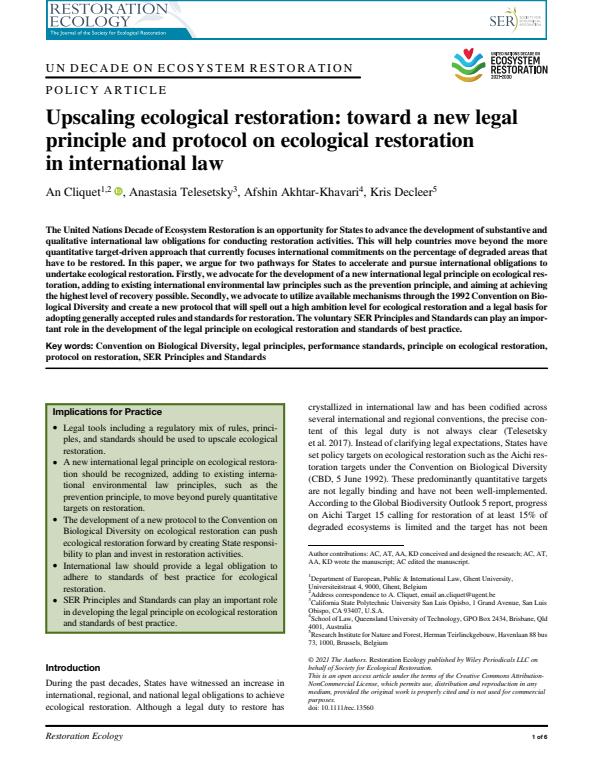Upscaling ecological restoration: toward a new legal principle and protocol on ecological restoration in international law
Details
| Volume | n/a |
|---|---|
| Magazine issue | n/a |
| Pages (to-from) | e13560 |
| Type | A1: Web of Science-article |
| Category | Research |
| Magazine | Restoration Ecology |
| Issns | 1061-2971|1526-100X |
| Publisher | Blackwell Publishing |
| Language | English |
Bibtex
@misc{7628389e-f72a-486a-b72d-f183ef4a6e58,
title = "Upscaling ecological restoration: toward a new legal principle and protocol on ecological restoration in international law",
abstract = "The United Nations Decade of Ecosystem Restoration is an opportunity for States to advance the development of substantive and qualitative international law obligations for conducting restoration activities. This will help countries move beyond the more quantitative target-driven approach that currently focuses international commitments on the percentage of degraded areas that have to be restored. In this paper, we argue for two pathways for States to accelerate and pursue international obligations to undertake ecological restoration. Firstly, we advocate for the development of a new international legal principle on ecological restoration, adding to existing international environmental law principles such as the prevention principle, and aiming at achieving the highest level of recovery possible. Secondly, we advocate to utilize available mechanisms through the 1992 Convention on Biological Diversity and create a new protocol that will spell out a high ambition level for ecological restoration and a legal basis for adopting generally accepted rules and standards for restoration. The voluntary SER Principles and Standards can play an important role in the development of the legal principle on ecological restoration and standards of best practice.",
author = "An Cliquet and Anastasia Telesetsky and Afshin Akhtar-Khavari and Kris Decleer",
year = "2021",
month = sep,
day = "16",
doi = "https://doi.org/10.1111/rec.13560",
language = "English",
publisher = "Blackwell Publishing",
address = "Belgium,
type = "Other"
}

